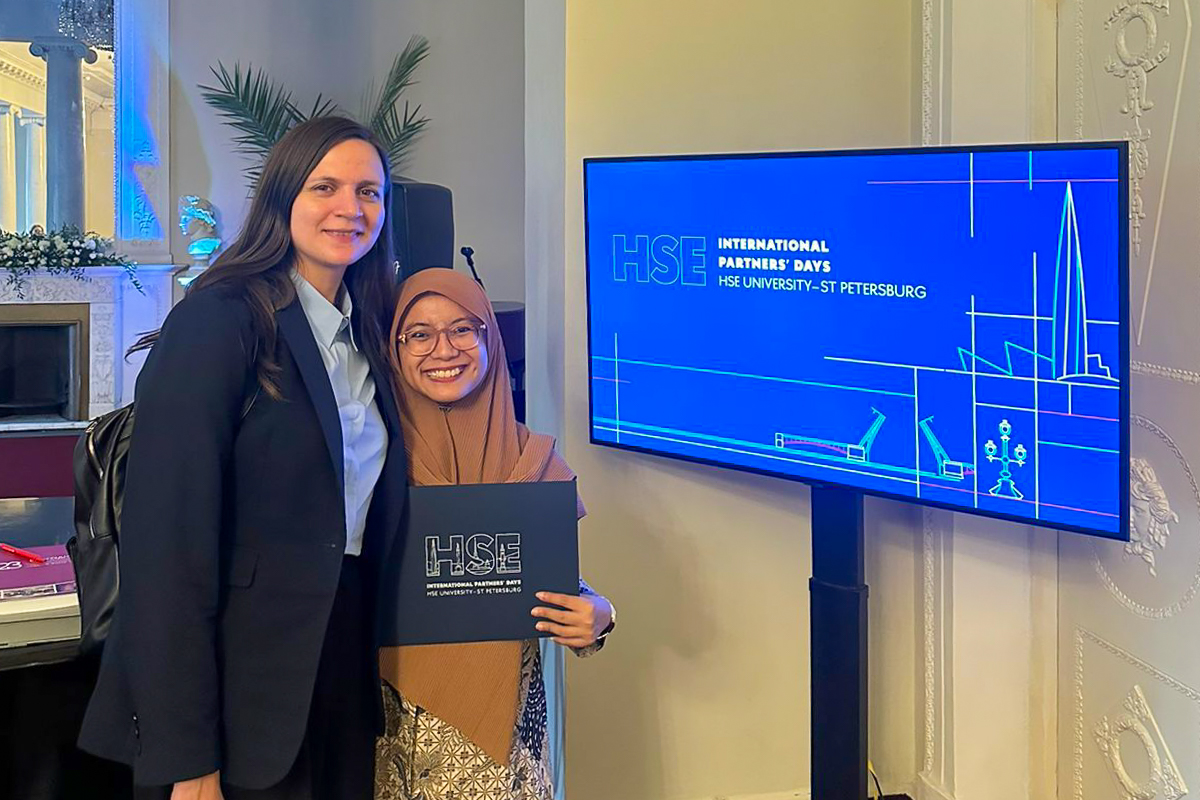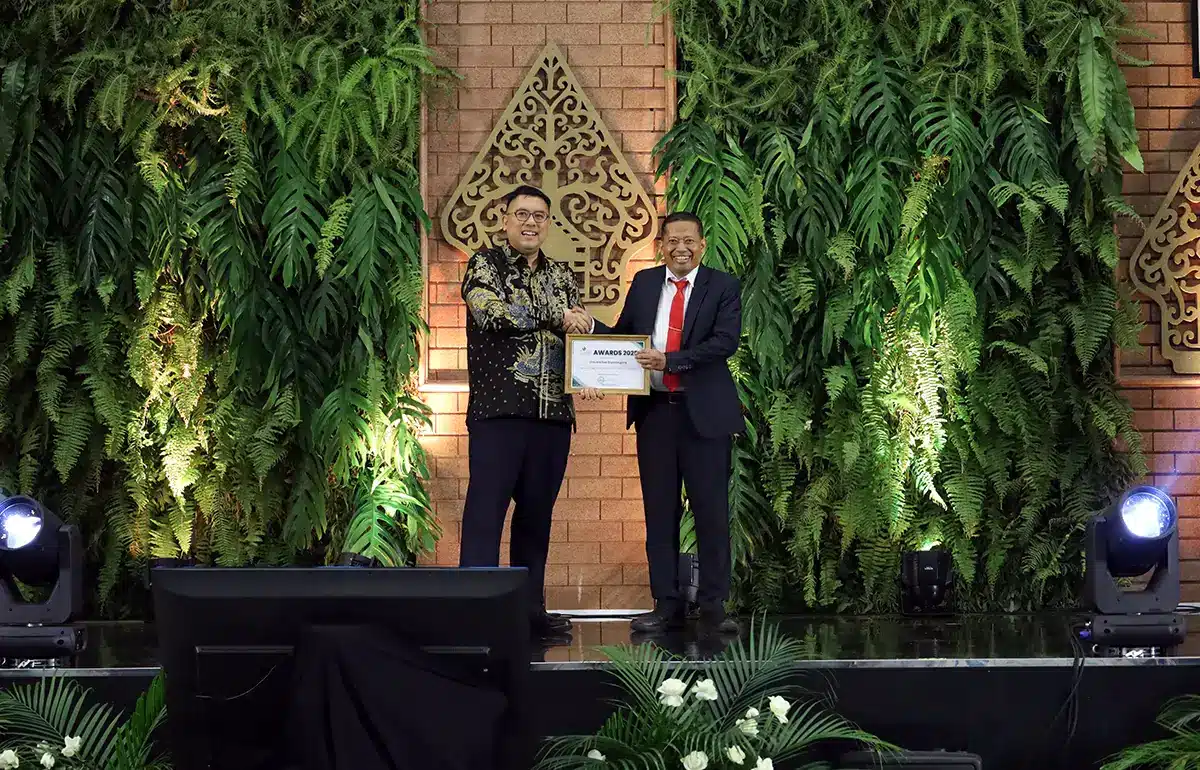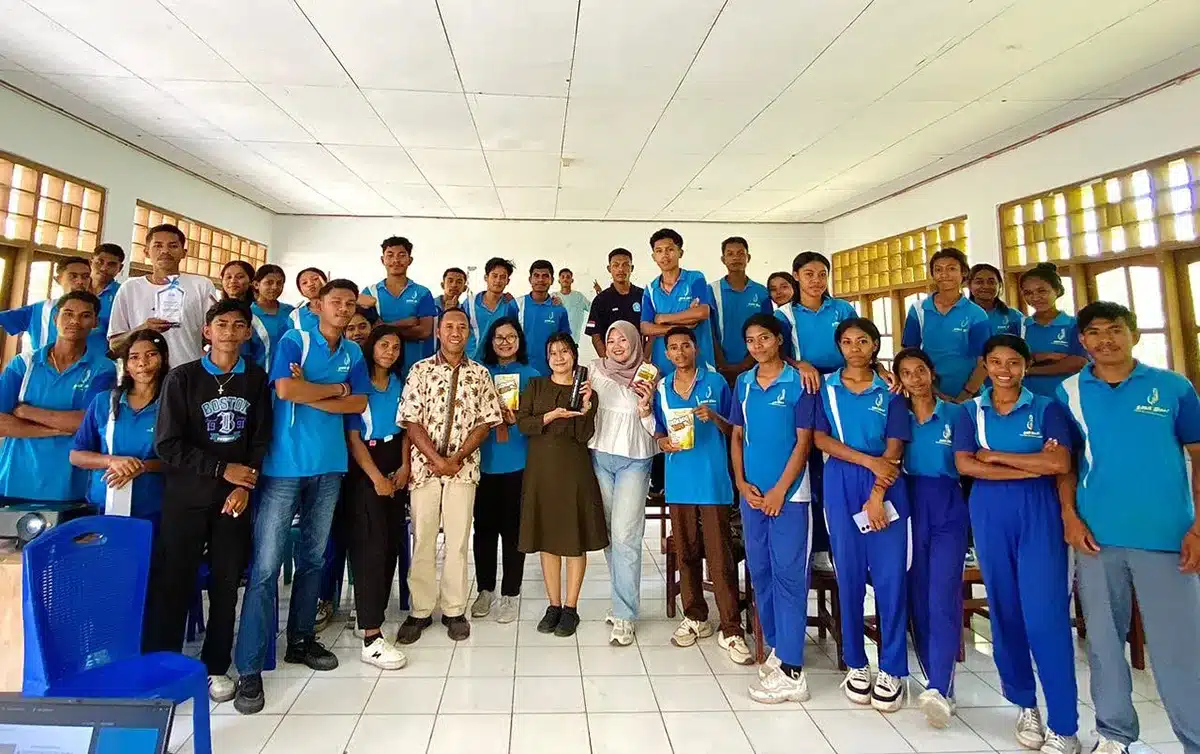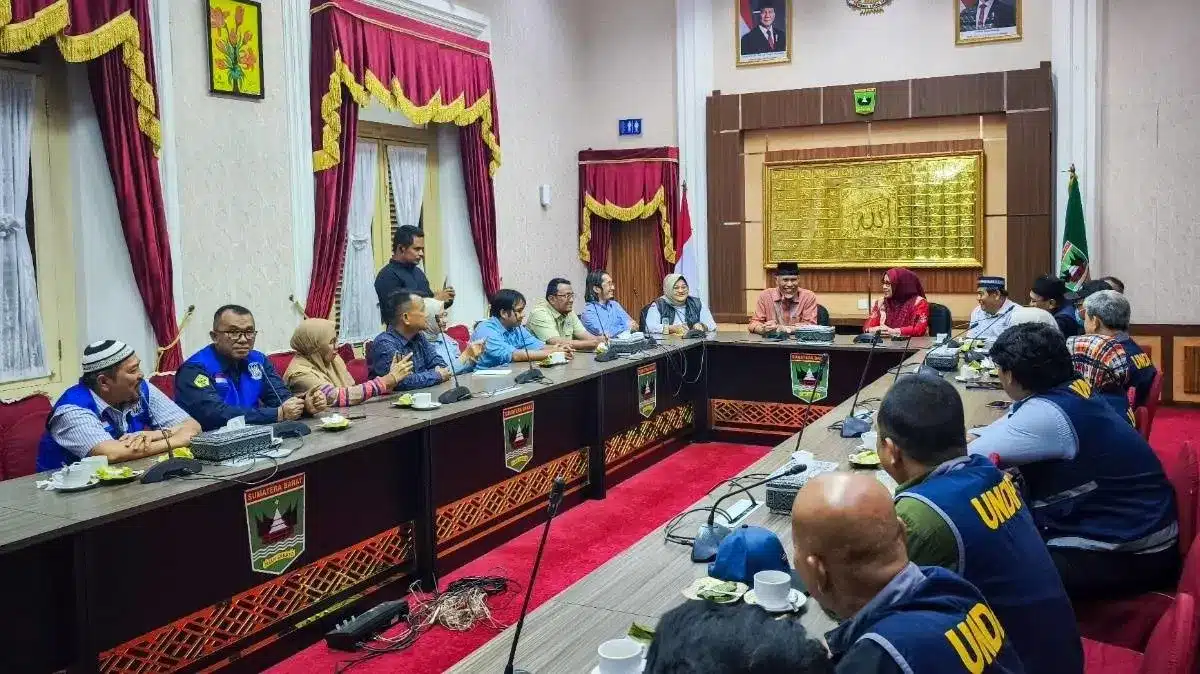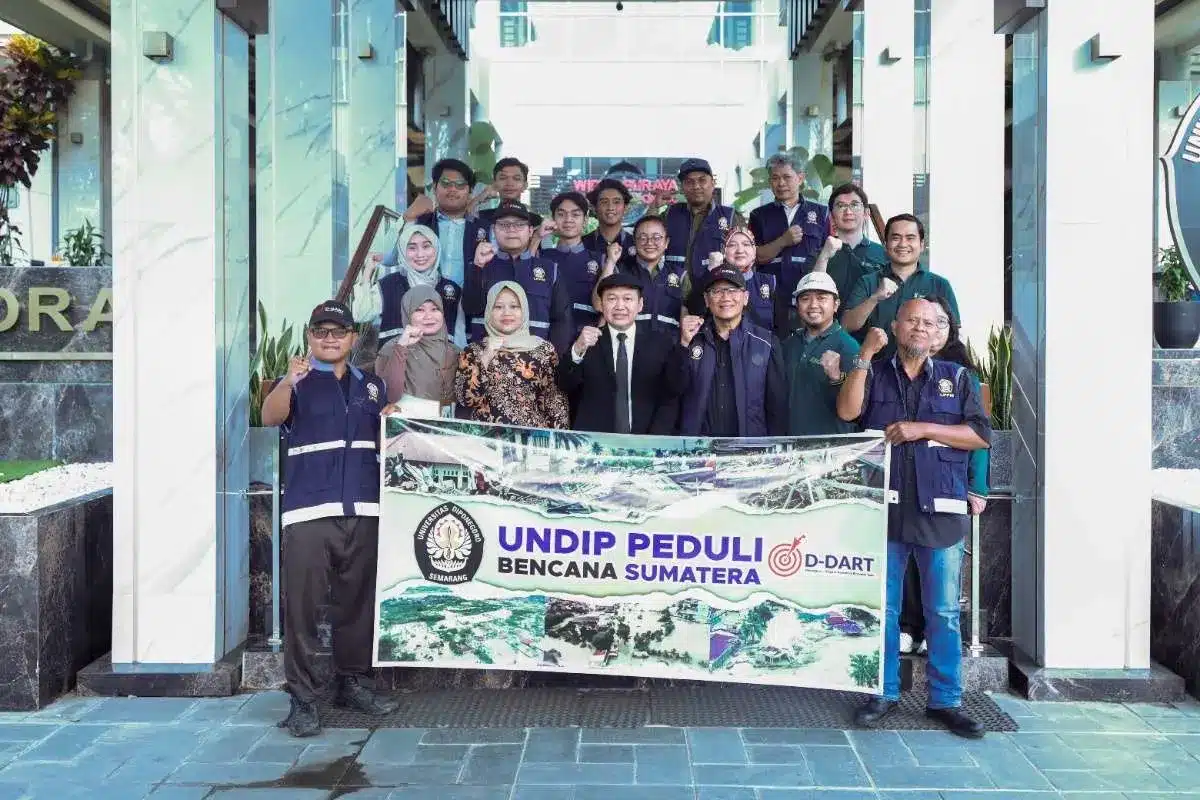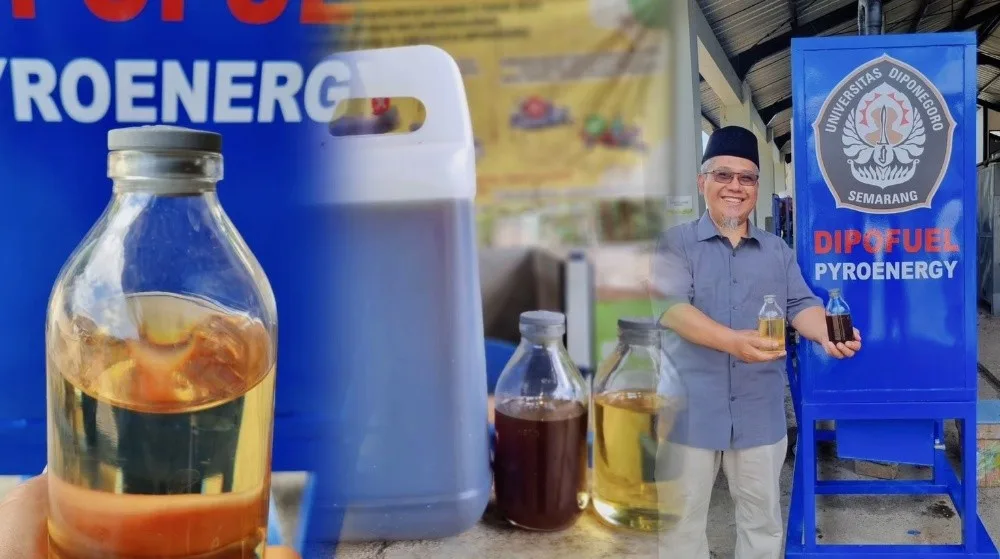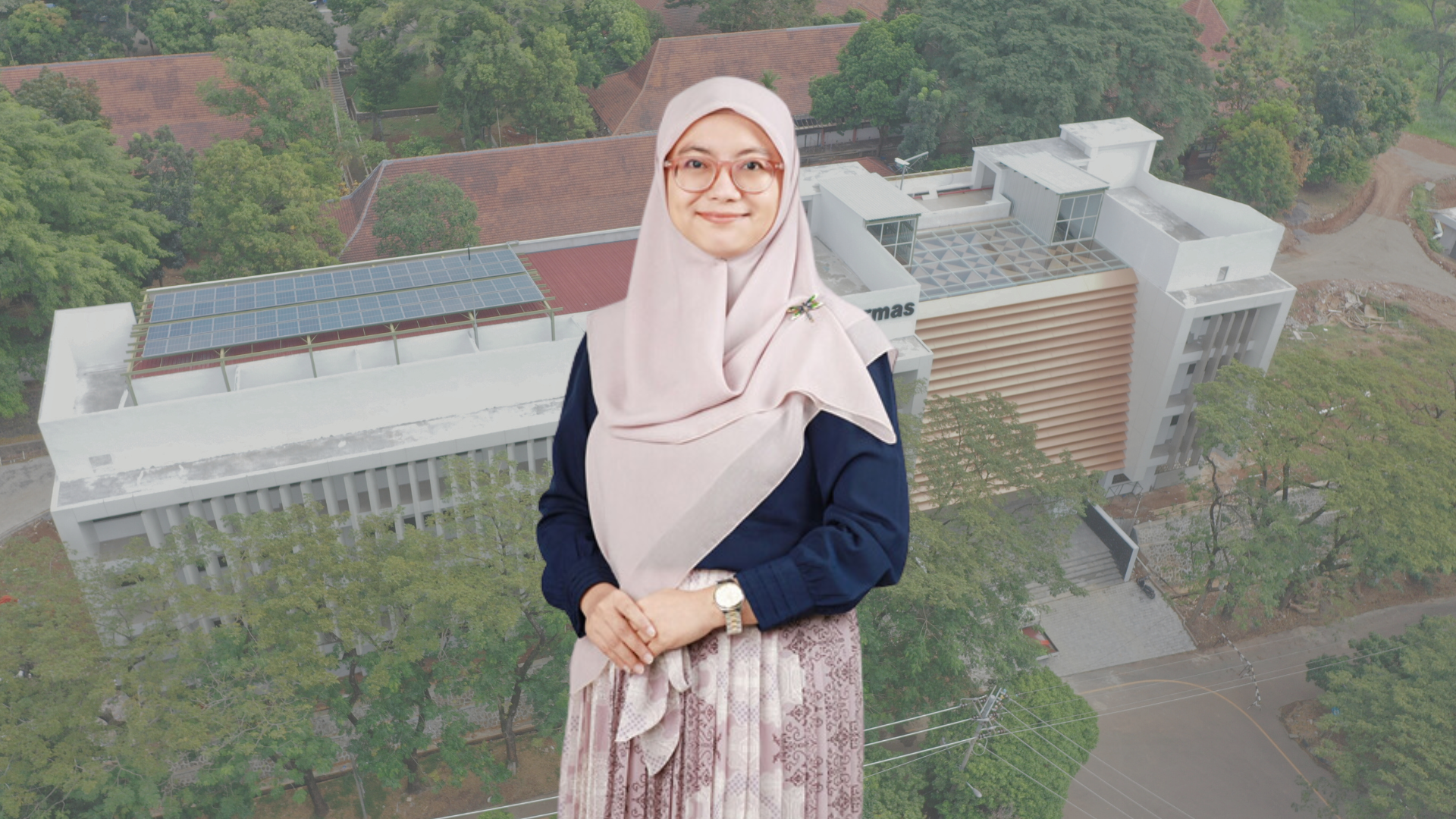The academic community at Diponegoro University (UNDIP) continuously innovates to advance research, particularly in enhancing the efficiency and productivity of the renewable energy sector. One such innovation is by a young researcher, Anggun Puspitarini Siswanto, S.T., Ph.D, a lecturer in the Industrial Chemical Engineering Technology (TRKI) Program at Vocational School UNDIP. She and her team are currently developing aircraft fuel from used cooking oil.
Anggun, who has 11 patents and an h-index of 6 on Scopus, has been advancing collaborative research with the industry. Her research, titled “Production of Bioavtur Based on Methyl Ester from Used Cooking Oil through the Development of a Nano Bubble Ozonolysis Reactor,” secured funding from the LPDP through the Research and Innovation Program for Advanced Indonesia (RIIM) by BRIN (2023-2025). In just one semester, Anggun has obtained two granted patents, numbers IDS000007969 and IDS000007413.
Amid her busy schedule as a lecturer, Anggun also actively reviews various fields. She was honored as a Visiting Associate Professor at the National Institute of Technology, Akashi College, Japan (2018-2019), and as a Guest Lecturer at HSE University in St. Petersburg, Russia, in May 2024.
Anggun’s research is driven by her concern over the fossil fuel energy crisis, a global issue due to its limited availability and contribution to global warming. Therefore, along with her research team, including Dr. Ria Desiriani, S.T., M.T.; Drs. Sutrisno, M.T.; Dr. Novi Hery Yono, S.T., M.T. (Migas Cepu), and the manager of the Biodiesel Mini Plant at Vocational School UNDIP, Mohamad Endy Yulianto, S.T., M.T., as well as several MBKM students (Abraham M.N., Shervaya, Fatimah Hapsari, Ade Kurnianto), they aim to develop renewable alternative fuels for aviation, specifically bioavtur.
“The effort to develop renewable alternative fuels and reduce greenhouse gas emissions in the aviation sector by about 15% includes using bioavtur. European countries have even targeted a 20% bioavtur blend,” Anggun explained. “One of the very prospective raw materials for bioavtur production is used cooking oil, as it is a waste or byproduct of cooking oil and is easily converted into bioavtur fuel,” she added.
“The conversion of methyl ester from used cooking oil into bioavtur through the nano bubble ozonolysis process has great development potential. The main advantage of this innovation is that it does not produce much pollution, increases conversion rates, and has high selectivity,” Anggun said.
“The ozonolysis process results in the formation of ozonide and aldehyde or ketone compounds in the unsaturated fatty acid alkene groups of the medium-chain methyl ester products,” Anggun elaborated.
Anggun also explained that the novelty of this research lies in applying Fine Bubble Technology (FBT) to cut medium-chain methyl ester products. The nanobubble ozonolysis reaction makes the bubble size smaller, increasing mass transfer efficiency, slowing particle speed, reducing operation time, and minimizing energy supply in the reactor. The bubble formation process involves static processes or dynamic processes of coalescence and break up.
“The overall process of bubble formation, bubble growth, and coalescence is known as cavitation. Coalescence refers to the merging of fine bubbles into larger bubbles, followed by the bursting of these bubbles and the formation of ultrafine bubbles. This bubble formation can be achieved through hydrodynamic and particle cavitation, sonication, electrochemical cavitation, and mechanical agitation,” Anggun added.
“The aim is for the findings and technological applications to become breakthroughs in solving national issues such as acid rain and global warming and to reduce crude oil imports as a source of fuel. Furthermore, the research outcomes can spur investment in new industries, both production and biofuel bioavtur industries as alternatives to fossil fuels, adding value to used cooking oil, stabilizing prices, and boosting the development of the renewable energy industry in Indonesia,” Anggun explained.
The research, conducted synergistically and institutionally between UNDIP’s Vocational Research Team, PPSDM Migas Cepu, and the Biodiesel Mini Plant at Vocational School UNDIP, aims to pioneer the production and commercialization of competitive bioavtur based on used cooking oil through well-proven technology with technology royalty sharing.
“This will essentially serve as a reference for local governments in developing macro policies to enhance local government economies and will impact national independence by expanding job opportunities and improving overall societal welfare,” Anggun concluded. (Endy-SV & DHW-Public Relations)
